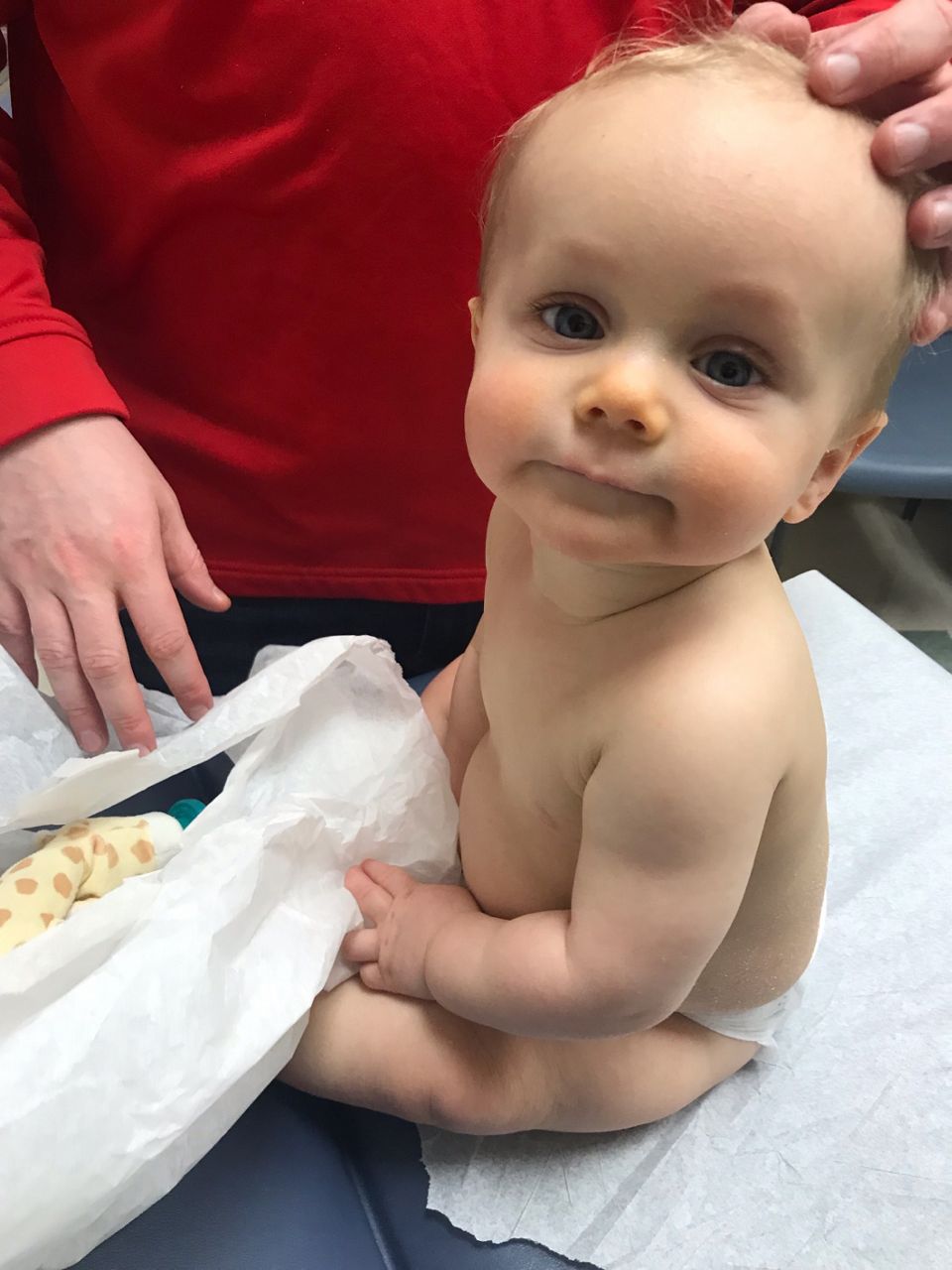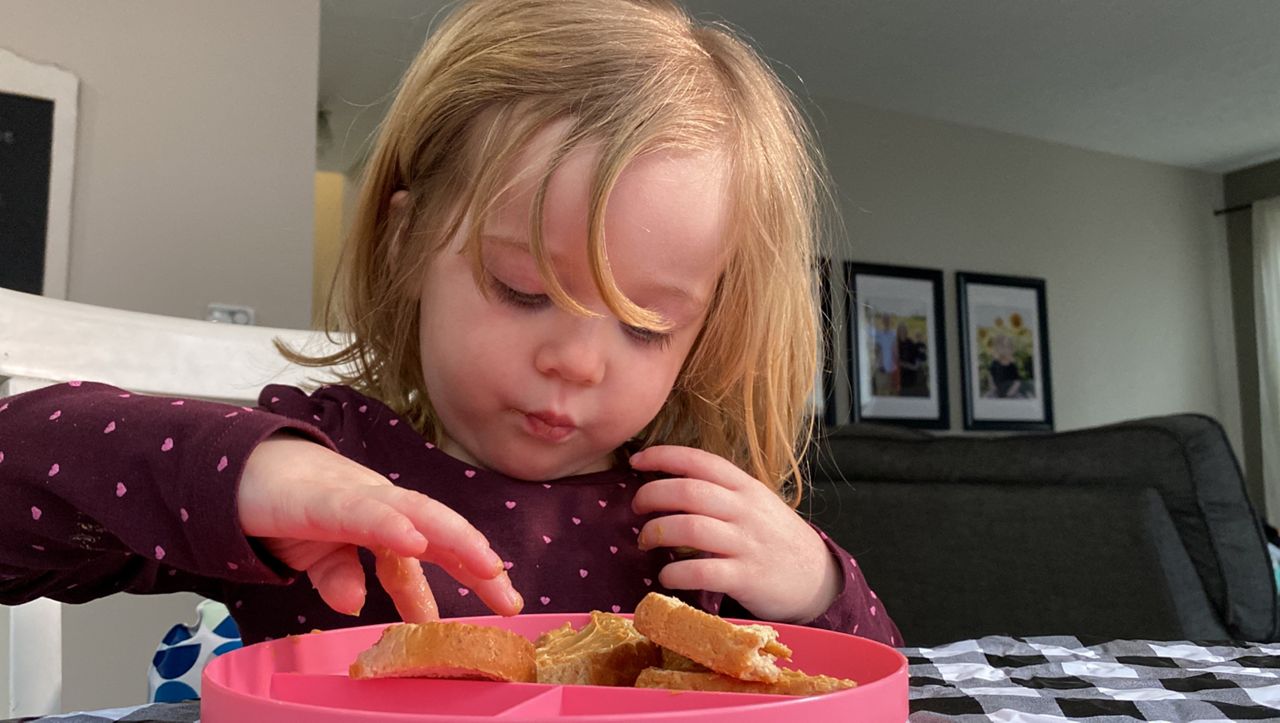CLEVELAND — Erin Cribbins said she and her husband did not grow up with any serious allergies, but that's not the case with their children.
“We make a strange genetic pair, apparently," she said. "Both of them were allergic.”
Their daughter, Mary, is 2 and their son, Jimmy, is 3.5 years old. Doctors diagnosed both of them with a peanut allergy.
It is National Peanut Month 🥜Currently, more than 1 million children in the U.S. have a peanut allergy.
— Micaela Marshall (@MMarshallTV) March 14, 2022
But a treatment program at @ClevelandClinic is offering hope that kids like Mary and Jimmy can outgrow the life-threatening allergy. Meet the Cribbins fam on @SpectrumNews1OH pic.twitter.com/6jY2KFmcdg
“Jimmy actually has multiple allergies. He’s allergic to milk, eggs, peanuts and a couple tree nuts, and his first allergic reaction was to milk. He had a bottle of formula for the first time at 8-months-old and had an anaphylactic reaction and had to go the ER and get epi [epinephrine] and all of that. So, that was definitely scary.”
Today, Jimmy is doing much better.
The kids eat peanut butter toast for breakfast just about every day.
Cribbins credits their progress to the Early Peanut Oral Immunotherapy Treatment (EPOIT) program at the Cleveland Clinic.
It’s for children age 4 and younger. An allergist helps the child build up a tolerance to peanuts by consuming tiny amounts of it. Over many months, the amount ingested increases gradually.
“From a safety perspective, it’s really relieving for a parent, especially with, you know, sending them to school at some point. Ideally, having this kind of behind us before we go to school and they’re around other kids who might have peanut products or accidentally eat something that has peanuts in it," said Cribbins.
Jimmy started the EPOIT program at 2-years-old, and Mary finished the program by the time she was 18-months-old.

“That’s really why we discovered Mary was allergic so early and was able to start her earlier than him and really have a good success with her," said Cribbins.
Both kids used to have negative reactions to peanuts.
“Coughing, rash, vomiting," recalled Cribbins.
Mary can now tolerate any amount of peanut butter, but Jimmy is still working up his dosage.
“He went up every two weeks, doubling the dose every two weeks as long as there was no reaction, up until he got to half a teaspoon," she said.
Currently, he eats half a teaspoon a day that mom covers up with the peanut butter alternative, SunButter.
“So, we’ve stuck with SunButter because it’s been the favorite for both kids," said Cribbins.
Peanut allergies are the most common cause of life-threatening allergic reactions, according to experts.
Cribbins is a nurse practitioner. She isn’t taking any chances. She keeps an EpiPen and AUVI-Q on hand at all times.
“They definitely both have the risk of having anaphylaxis if they get too much," she said.
Despite that risk, Cribbins worries far less than she did before thanks to the EPOIT program.
She is grateful her children can eat even a small amount of peanut products because it keeps them safe when out in the world.
“For a mom who thinks it’s easy to make peanut butter toast for breakfast, it’s also really nice," she said.

The Cribbins family is just one example of this.
In the last decade, the prevalence of peanut allergies in children has doubled.
But there is some good news. The first FDA-approved food allergy treatment came out two years ago. It’s for children ages 4 and up.
“Up until then, the only treatment for these families was complete avoidance," said Dr. Sandra Hong, the director of the Food Allergy Center of Excellence at the Cleveland Clinic. "You know, if you had an allergic reaction, use epinephrine and go to the emergency room, and that was all we had to offer. With all of the information we have on prevention, getting into their diets early and trying to kind of change that flexibility in their diets, we actually realized by treating them at the first signs of allergic reactions, and not just waiting to see if they would grow out of it, is turning this around for us completely.”
Currently, only 1 in 5 children with a peanut allergy outgrow the condition before adulthood. But Hong said treatment advancements could reverse that, with 4 in 5 children leaving the allergy behind as they grow up.



